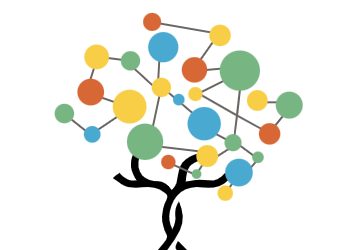"This study identified that emotional trauma took place in all participants, and this resulted in many having Post-Traumatic Stress Disorder manifestations as a result of returning to school for their own children. Participants still noted anger and resentment as...
Poor Outcomes for Reading Recovery [Premium]
“Initial gains from first-grade intervention didn’t last and kids performed worse in third and fourth grade…” Over 2 million students in the US have been taught reading with based Reading Recovery, a short term intervention program that uses pull-out one-to-one tutoring to first grade students. It was one of the few programs supported by the What Works Clearing House to improve general achievement (see report here – link goes to a public google drive which contains the report). However, new data suggests that at long-term following, students who received Reading Recovery performed worse than their peers by the 3rd and 4th grades: The researchers at the University of Delaware gave possible reasons for negative results: Of note, Reading Recovery had received $55 […]
Learning from Lockdown: Dyslexic Medical Students
"The learning experiences of dyslexic medical students during the COVID-19 pandemic: a phenomenological study. This study has explored the learning experiences of dyslexic medical students during the COVID-19 pandemic... Generally, it fostered a culture of...
Creativity and Dyslexia
"Individuals with dyslexia significantly outperformed controls in creativity scores in adult samples..." - Majeed et al., 2021 In the past year, there have been two more studies to add to the creativity research literature on dyslexia. The first, a...
Complementary Cognition
" ...our current education and work environments are often not designed to make the most of dyslexia associated thinking, we hope this research provides a starting point for further exploration of the economic, cultural and social benefits the whole of society can...
Rapid Automatized Naming (RAN) and Its Impact on Dyslexia [Premium]
“Substantial evidence shows that dyslexic readers have problems with rapid naming of visual items. Early research assumed that this was a consequence of phonological processing deficits, but recent findings suggest that non-phonological processes may lie at the root of the association between slow naming speed and poor reading. The hypothesis that rapid naming reflects an independent core deficit in dyslexia is supported by the main findings: (1) some dyslexics are characterized by rapid naming difficulties but intact phonological skills; (2) evidence for an independent association between rapid naming and reading competence in the dyslexic readers, when the effect of phonological skills was controlled; (3) rapid naming and phonological processing measures are not reliably correlated. “ – Araujo et al. 2011 Rapid automatized naming or […]
White Noise Improves Reading Skills and Memory in Reading Disabilities [Premium]
Some of you may remember research in the past that showed that individuals with dyslexia have more difficulty screening out background noise (discussed in the news HERE). Students or adults with this difficulty can usually request quiet area for work or test-taking under the ADA or Americans for Disabilities Act. Now another research group has tested the effect of “white noise” on reading skills and memory recall in children with a reading disability. From the paper: “The study was conducted with a group of 30 children with RD and phonological decoding difficulties and two comparison groups: one consisting of skilled readers (n = 22) and another of children with mild orthographic reading problems and age adequate phonological decoding (n = 30). White noise […]
Daydreaming While Reading [Premium]
“There are certain half-dreaming moods of mind in which we naturally steal away from noise and glare, and seek some quiet haunt where we may indulge our reveries and build our air castles undisturbed.” – Washington Irving Daydreaming holds a curious position in the areas of science. On the one hand, daydreaming has been seen as a negative, associated with inattention and poor task persistence, but on the other, associated with creative behavior and personal inspiration. Neuroscientists have taken a renewed interest in daydreaming because daydream pathways activate the default mode network, a brain network that is now known to be important for reflecting on one’s self as well as others, remembering the past, and imagining the future. Studies of dyslexic and non-dyslexic people […]
Preparing with Templates and Posters [Premium]
When interviewing accomplished people of all sorts who are also dyslexic, there are some recurring themes – and one is, “I learned how to do the ‘dyslexic thing,’ you know, overprepare.” In some cases that means committing more hours to something – whether it was oral presentation or final project or job rotation. But often, it’s not just extra time spent; it’s also learning how to streamline certain repetitive features along the lines of “plan better” and not just “work more.” I was recently reminded of this when a social worker posted her work hacks for school and for work. One example is creating a template for her case notes: The template streamlines repetitive information that needs to be covered and reduces […]
College Success: Strategies
"One half of all students who begin college fail to complete their degrees, resulting in wasted talents, time, and resources... Educating students on learning skills only solves part of the problem for students at risk for dropping out of college. According to this...
Dyslexia and Perfectionism [Premium]
For many, college is a “perfect storm” for personal stress. Reading and writing workloads may be astronomical, student and family expectations are high, and many students for the first time may be without personal and academic supports that allowed them to enter college in the first place. College is the time when students could find their organizational and time management abilities stretched beyond their ability to cope. There are surprisingly few studies looking at coping strategies for dyslexic students in college or universities. Recently, in the United Kingdom, researchers discovered that unhealthy patterns of perfectionism may negatively impact students’ well-being and the likelihood to reach out for help. Perfectionism is now thought to be a common personality disposition characterized by the making of high personal […]
Dyslexia and Stronger Emotional Responses [Premium]
Neuroscientists at the University of California San Francisco, just reported their finding that dyslexic children ages 7-12 showed stronger emotional responses as measured by a variety of measures than their non-dyslexic peers. From the study abstract: “..we examined whether right-hemisphere-based emotional reactivity may be elevated in dyslexia. We measured emotional reactivity (i.e., facial behavior, physiological activity, and subjective experience) in 54 children ages 7–12 with (n = 32) and without (n = 22) dyslexia while they viewed emotion-inducing film clips. Participants also underwent task-free functional magnetic resonance imaging. Parents of children with dyslexia completed the Behavior Assessment System for Children, which assesses real-world behavior. During film viewing, children with dyslexia exhibited significantly greater reactivity in emotional facial behavior, skin conductance level, and respiration rate […]


![Poor Outcomes for Reading Recovery [Premium]](https://www.dyslexicadvantage.org/wp-content/uploads/2022/06/debbie-tea-XQD-eLInH6s-unsplash-400x250.jpg)



![Rapid Automatized Naming (RAN) and Its Impact on Dyslexia [Premium]](https://www.dyslexicadvantage.org/wp-content/uploads/2021/12/Rapid-Automatized-Naming-357x250.png)
![White Noise Improves Reading Skills and Memory in Reading Disabilities [Premium]](https://www.dyslexicadvantage.org/wp-content/uploads/2021/09/White-noise-2-400x250.jpg)
![Daydreaming While Reading [Premium]](https://www.dyslexicadvantage.org/wp-content/uploads/2021/08/daydream-400x250.jpg)
![Preparing with Templates and Posters [Premium]](https://www.dyslexicadvantage.org/wp-content/uploads/2021/08/Templates-2-400x250.jpg)

![Dyslexia and Perfectionism [Premium]](https://www.dyslexicadvantage.org/wp-content/uploads/2021/06/Screen-Shot-2021-06-07-at-9.42.35-AM-400x250.png)
![Dyslexia and Stronger Emotional Responses [Premium]](https://www.dyslexicadvantage.org/wp-content/uploads/2021/04/Stronger-Emotional-292x250.png)













